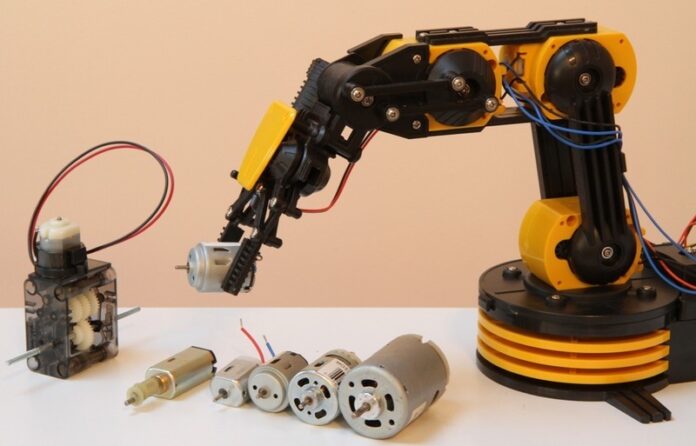
A DC motor is a machine designed to convert electrical energy into rotating motion, powering everything from industrial machinery to household appliances. In this article, we’ll discuss some key advantages of DC motors and how investing in these machines could benefit your business.
DC vs AC motors: what’s the difference?
AC and DC motors share one distinctive function—turning electrical energy into mechanical energy. The main difference lies in the type of energy they convert.
As you might expect, DC motors convert DC (direct current) into mechanical energy, while AC motors turn AC (alternating current) into mechanical energy. Beyond this, each type has its pros and cons.
In industrial settings, AC and DC motors serve different purposes. You’ll most commonly see AC motors used in applications where efficiency, durability, and flexibility are key, such as conveyor systems, fans, computers, and transport equipment.
On the other hand, you’ll normally find DC motors in heavy-duty equipment where high torque at low speeds is more important than speed control. Some examples include agricultural machinery, cranes, elevators, and pumps.
Why choose a DC motor over an AC motor?
There are a few reasons why you might choose a DC motor over an AC motor. It all comes down to your industry and your specific application.
Let’s discuss a few advantages of DC motors. Compared with AC motors, DC motors offer:
- Better speed control and variation
- More torque
- Brushed and brushless options
- Lower costs
- Higher power density
- Better torque at low speed
- Ease of maintenance and service
Brushed DC motors have been around for more than 140 years, making them one of the oldest motor types still available on today’s market.
However, brushless DC motors are the more popular option for modern applications. Industries value these motors for their improved efficiency and directional and speed control.
Industry applications of DC motors
Whichever industry you work in, you’ll likely find a suitable application for a DC motor. As we mentioned above, DC motors are especially suitable for applications where low-speed or constant speed torque is necessary. They’re also the best choice when dynamic reversing and braking are necessary, as with most industrial machinery.
Some popular industry and commercial applications of DC motors include:
- Handheld pumps and sprayers
- Off-road equipment
- Coffee machines
- Electric wheelchairs
- Excavators
- Steel mills
- Elevators
- Winching systems
- Air compressors
Some DC motors are more commonly used in particular applications than others. For example, you’re more likely to see brushless motors powering small consumer electronics and handheld power tools. In contrast, brushed motors are popular for more heavy-duty applications like powering paper machines and cranes.
Investing in DC motors is a smart choice
DC motors offer a range of benefits across broad industrial applications. Thanks to their efficiency, high torque, and great speed control, they’re a common sight in all kinds of industrial equipment ranging from small handheld tools to heavy machinery like excavators and agricultural vehicles.
If your business uses any machinery or equipment that runs on DC power, investing in high-quality DC motors is crucial.








